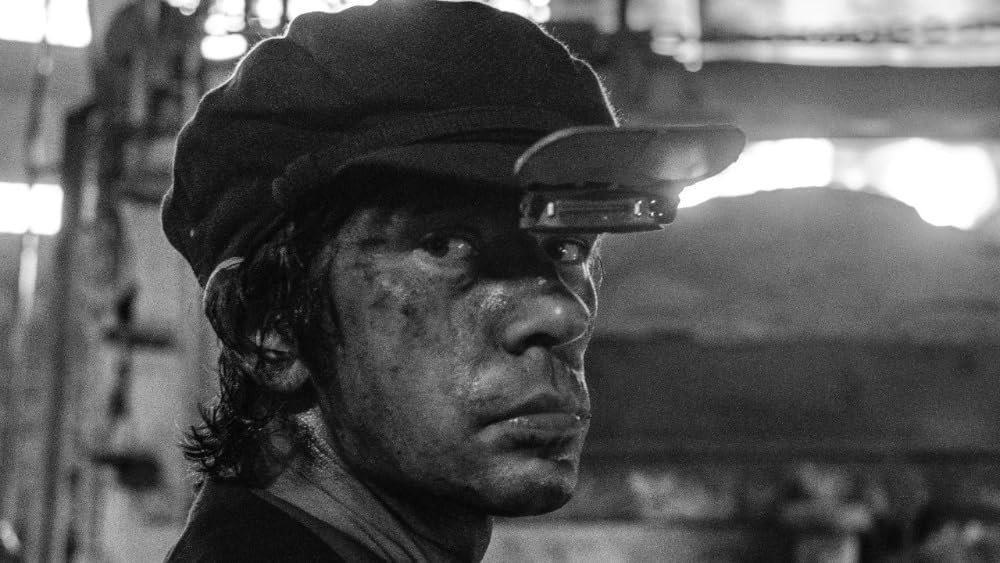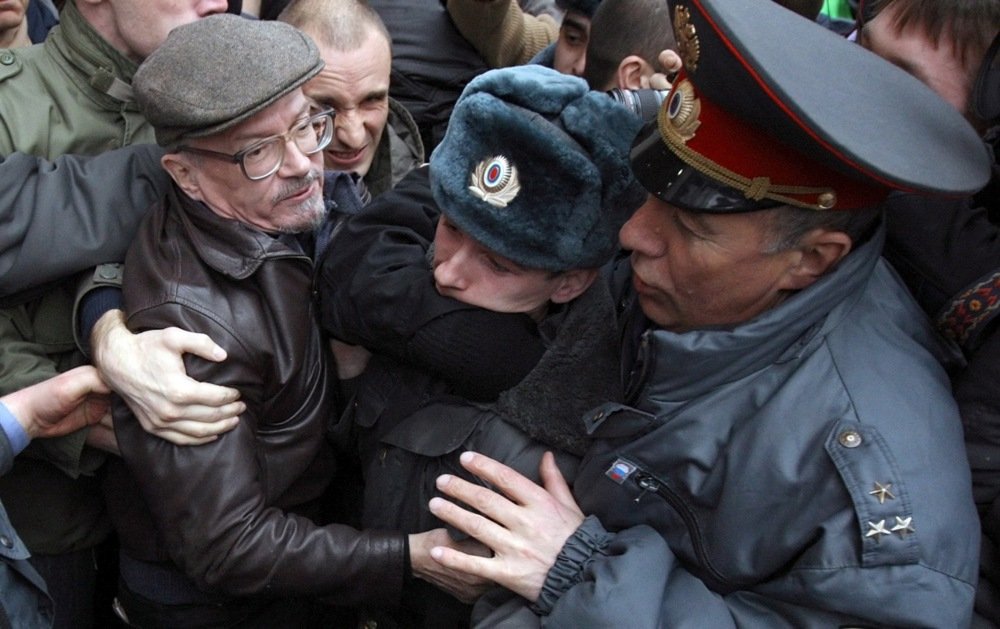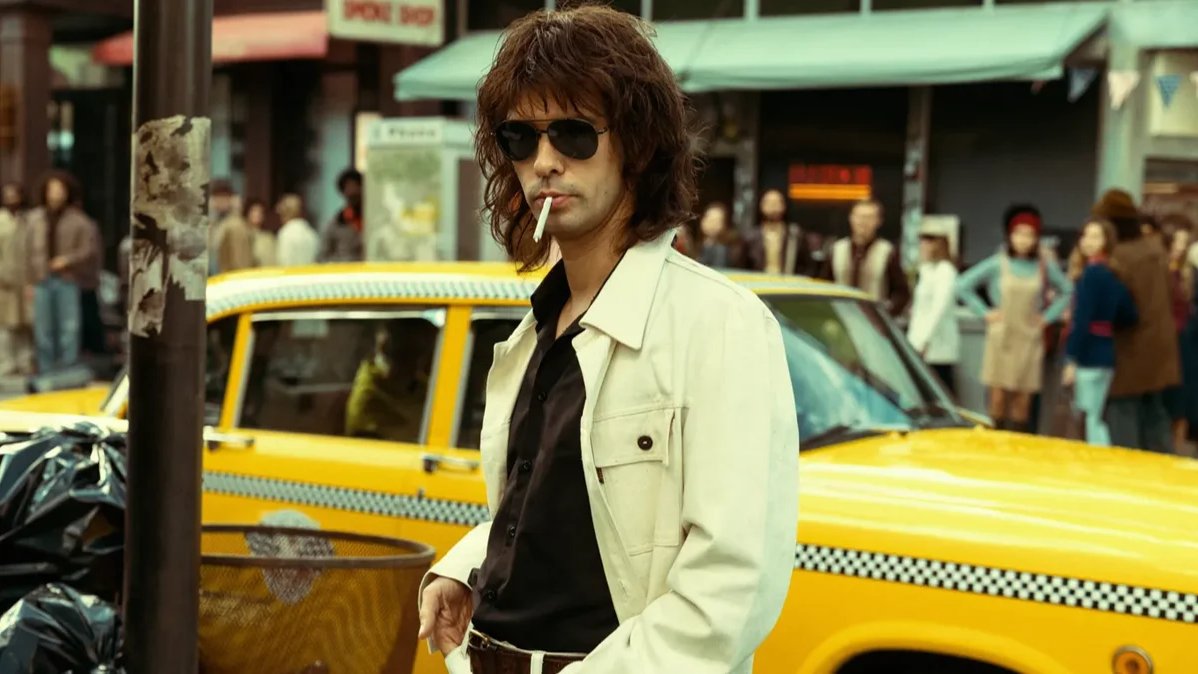Even after his death four years ago, by which time he was widely reviled and considered something of a madman, the Russian writer, émigré and extremist political disruptor Eduard Limonov still inspires fascination in many, as demonstrated by multi-award winning Russian director Kirill Serebrennikov’s new film Limonov: The Ballad, which premiered at the Cannes Film Festival on Sunday.
Based on French writer Emmanuel Carrère’s 2011 novel Limonov, which was in turn based on Limonov’s life, the film stars British actor Ben Whishaw and is Serebrennikov’s fifth Cannes outing, as well as his first feature entirely in English.
Limonov rose to prominence in the 1970s and 1980s for his poetry and fiction, making his name with his fictionalised 1976 account of his own experiences as a Soviet migrant in New York, It’s Me, Eddie. The book, which wasn’t published in Russia until 1991, eventually found an enthusiastic Russian readership, selling over 1 million copies in the years after the Soviet collapse.
In the later decades of his life, however, Limonov’s reputation as a writer was overshadowed by his incendiary politics after he co-founded Russia’s right-wing extremist National Bolshevik party with ultranationalist “philosopher” Alexander Dugin. While the party was ultimately outlawed in 2007, Limonov’s extremist views appear not to have softened, and he was an outspoken supporter of Russia’s illegal 2014 annexation of Crimea.
Polish director Paweł Pawlikowski, who won an Oscar in 2015 for his film Ida, had originally planned to adapt Carrère’s novel into a film before allegedly losing interest in the project, leaving Serebrennikov to take over where Pawlikowski’s screenplay left off.

Ben Whishaw as Eduard Limonov in a still from Limonov: The Ballad. Photo: IMDB
Emigration is a central theme of both the film and its production. The narrative, like It’s Me, Eddie, follows a fictionalised version of Limonov emigrating to New York from the Soviet Union in the 1970s. Serebrennikov himself left Russia in 2022, and the film features a number of cameos from other Russians who went into exile at around the same time following Russia’s full-scale invasion of Ukraine, including actress Chulpan Khamatova and journalist Sergey Nikolaevich. For similar reasons, while a few of the film’s scenes were shot in Russia before the war began, most of the film was shot outside the country, with Latvia having to double for New York in the late 1970s.
During a press conference in Cannes, Serebrennikov maintained that his own “emigration” had been very different from the experience of loneliness and displacement depicted in the film. “I was leaving a place that was very bad for me and going to a place where I have friends, work, and more opportunities — a place where things, possibly, would be better. That is not emigration. That is just new doors opening, a new life starting,” he said.
The film received generally positive reactions from attendees. One Italian delegate who said that Limonov had already become something of a cult figure in Europe, described the film as “joyous” and said he hoped it would garner more attention internationally than Serebrennikov’s previous films had.
The closest the film comes to engaging with the late-in-life politics of the real Limonov is a message before the credits, which informs viewers that members of the National Bolshevik Party fought in eastern Ukraine during Russia’s eight-year proxy war against Kyiv and that Limonov had died two years before the full-scale invasion of Ukraine began.
But other viewers thought that Limonov’s political legacy might stand in the way of the film enjoying widespread acclaim. “How many people abroad will really want to see a film about a man who supported the annexation of Crimea?” one French festival delegate wondered rhetorically.
Serebrennikov has insisted, however, that the film should not be seen as a biopic, stressing that the book on which it was based was a novel rather than a biography. He said that the film’s protagonist was a character “invented, in part, by Carrère” that melded elements of the real Limonov, whom Carrère knew personally in France in the 1980s, with the heroes of Limonov’s own works.

Russian riot police detain Eduard Limonov during a protest in Moscow, 31 March 2010. Photo: EPA/SERGEY ILNITSKY
The carefully-maintained distinction between Limonov the character and Limonov the man may explain why so little of the film — a mere 15 minutes — deals with the National Bolshevik Party for which the real Eduard Limonov is now most famous. Instead, the focus is squarely on Limonov’s escapades in New York, including his work as a butler, his sexual experimentation with men, and his tumultuous relationship with model Yelena Shchapova. Other recurring themes are Limonov’s disgust with the capitalist culture of the West, his nonconformity and his desire to remain an outsider even after returning to Russia following the collapse of the Soviet Union.
The closest the film comes to engaging with the late-in-life politics of the real Limonov is a message before the credits, which informs viewers that members of the National Bolshevik Party fought in eastern Ukraine during Russia’s eight-year proxy war against Kyiv and that Limonov had died two years before the full-scale invasion of Ukraine began.
Serebrennikov himself acknowledged Limonov’s politics more directly in the press release than he did in the film. “It feels like we’re now living in Limonov’s world,” he said. “It’s as though the Russian authorities read his books and did exactly what he suggested.”
Join us in rebuilding Novaya Gazeta Europe
The Russian government has banned independent media. We were forced to leave our country in order to keep doing our job, telling our readers about what is going on Russia, Ukraine and Europe.
We will continue fighting against warfare and dictatorship. We believe that freedom of speech is the most efficient antidote against tyranny. Support us financially to help us fight for peace and freedom.
By clicking the Support button, you agree to the processing of your personal data.
To cancel a regular donation, please write to [email protected]

